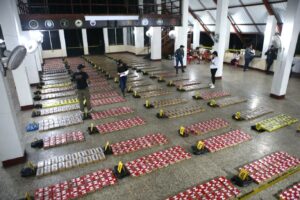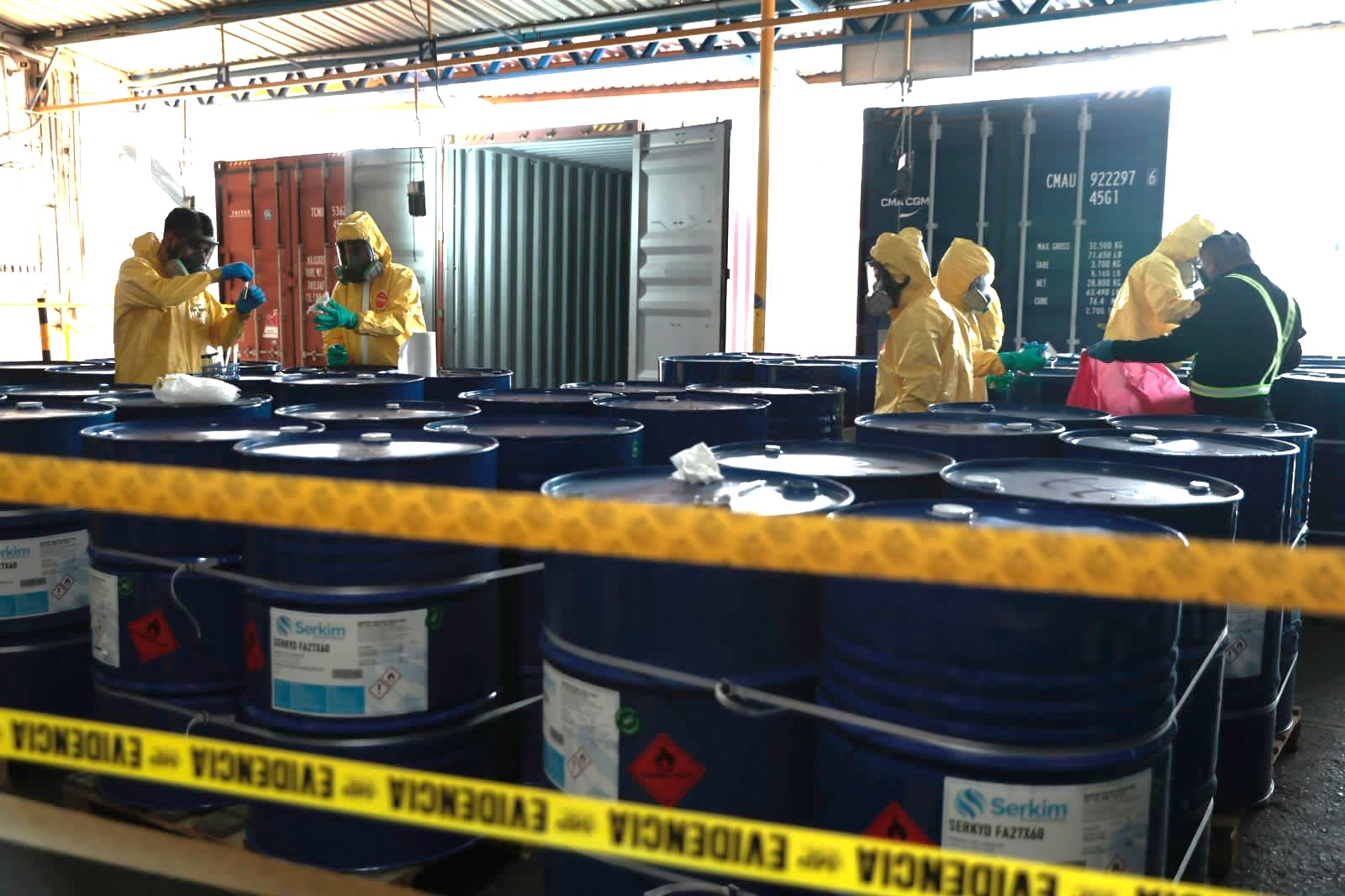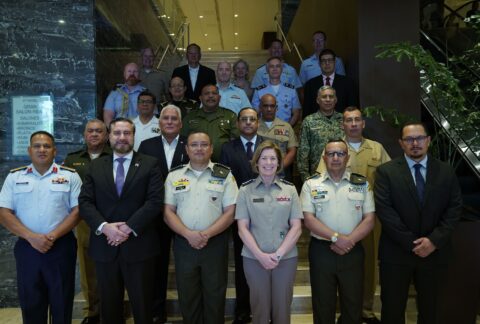The International Narcotics and Law Enforcement (INL) section of the U.S. Embassy in Guatemala provides support to strengthen the professional capabilities of Guatemala’s National Civil Police (PNC), to improve citizen security and to combat narcotrafficking and related transnational organized crimes.
This partnership is key as one of Guatemala’s main challenges is halting the advance of international narcotrafficking groups that seek to position themselves in the country, such as Mexico’s Jalisco New Generation Cartel, according to Guatemala’s specialized counternarcotics police (SGAIA).
“These groups are turning Guatemala into a large testing laboratory to advance their own production of raw materials,” Carlos Menocal, a narcotrafficking expert and former Guatemalan interior minister, told Diálogo on March 28. “This includes narco-laboratories, importing chemical precursors to manufacture drugs with fentanyl, and planting two types of coca leaf, where international narcotraffickers are experimenting with the possibility of transferring coca leaf crops to the tropical jungles of Guatemala.”
INL support to the PNC includes “activities, results, objectives, and resource requirements to strengthen operations to detect and deter narcotrafficking and other illicit activities, and to improve security in the national territory,” state-run Diario de Centro América reported.

According to the SGAIA, fentanyl is not produced or consumed in the country, Guatemalan daily Prensa Libre reported, but it is exported from China and then transported to Mexico and the United States. On March 23, the PNC reported the seizure of four containers that initially tested positive for fentanyl on a ship from Turkey that stopped at the Puerto Barrios seaport terminal, in the Izabal department. However, DEA supported testing confirmed the chemical substances were not fentanyl. Interagency response and attention to the movement of precursor chemicals is nonetheless an improvement and important sign of Guatemala’s partnership on counternarcotics trafficking and attention to the threat posed by synthetic drugs and fentanyl.
In the fight against narcotrafficking, the U.S. is a constant partner to Guatemala, helping to strengthen security institutions in Guatemala and the Central American region. As such, INL, through the U.S. Embassy in Guatemala, donated four interceptor vessels in April 2021, and three river craft vessels in February 2022 to strengthen the capabilities of the Guatemalan Naval Special Forces, InfoDefensa reported.
“The areas of opportunity for the fight against narcotrafficking may be in the improvement, equipment, in the allocation of logistics and financial resources for Guatemala’s counternarcotics forces,” Menocal said. “It can be in a shared agenda, with better coordination, and very specific issues, such as the continental fight against narcotrafficking with international cooperation agencies.”
Guatemala’s Prosecutor’s Office for Drug Trafficking Crimes, in coordination with several Latin American countries and with the legal backing of international agreements for the fight against narcotrafficking, seized 5,945.43 kilograms of cocaine in 2022, the Ministry of Interior indicated.
In addition, according to the Ministry’s data, in 2022, the Guatemalan Interinstitutional Center against Drug Trafficking dismantled seven criminal organizations that engaged in narcotrafficking, disabled 17 clandestine airstrips, and destroyed seven drug laboratories.









